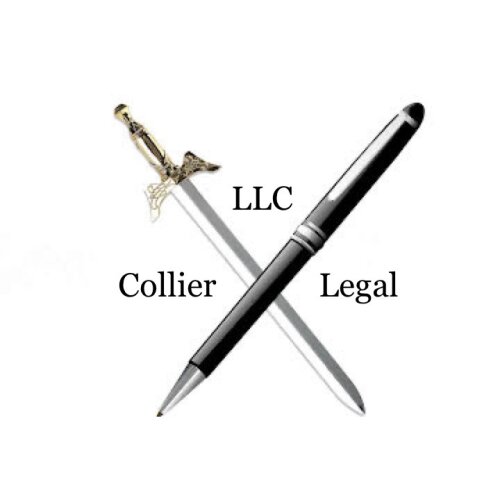Best New Business Formation Lawyers in Ohio
Share your needs with us, get contacted by law firms.
Free. Takes 2 min.
Or refine your search by selecting a city:
List of the best lawyers in Ohio, United States
About New Business Formation Law in Ohio, United States
Starting a new business in Ohio involves more than just launching your idea. It requires adherence to a set of state and local regulations designed to ensure proper business structure, compliance, and taxation. New Business Formation law in Ohio refers to the legal processes and requirements associated with creating a new business entity, such as a sole proprietorship, partnership, limited liability company (LLC), or corporation. Whether you are a first-time entrepreneur or a seasoned businessperson, understanding Ohio’s formation laws is essential to starting your business on a solid legal foundation.
Why You May Need a Lawyer
Engaging a lawyer during new business formation can be vital for many reasons. Legal professionals can help you determine the appropriate business structure to meet your goals, handle the preparation and filing of necessary documents, and ensure compliance with state and federal laws. Common situations where legal advice is beneficial include:
- Choosing between LLC, corporation, partnership, or sole proprietorship based on liability and tax considerations
- Drafting and reviewing partnership or operating agreements
- Registering your business with the Ohio Secretary of State
- Navigating federal, state, and local licensing requirements
- Understanding trademark, copyright, and patent issues
- Negotiating leases or other contracts
- Setting up employee and contractor agreements
- Advising on capital structure and investment
- Ensuring compliance with employment, tax, and zoning laws
- Resolving disputes among business partners
A lawyer’s knowledge can help avoid common pitfalls and costly mistakes, giving your new business the best chance of success.
Local Laws Overview
Ohio has specific laws governing the formation and operation of new businesses. Here are key aspects relevant to business formation in Ohio:
- Business Structure: Ohio allows several types of entities, including sole proprietorships, general and limited partnerships, limited liability companies (LLCs), corporations (C and S types), and non-profit organizations. Your choice impacts liability, taxation, and management.
- Filing Requirements: Most businesses need to register with the Ohio Secretary of State. For LLCs and corporations, you must file formation documents such as Articles of Organization or Incorporation.
- Name Registration: Your business must have a unique name, not previously registered by another entity in Ohio. Name availability can be checked with the Secretary of State.
- Licensing and Permits: Depending on your industry, you may need local, state, or federal licenses and permits to operate legally.
- Employer Obligations: If you hire employees, you must adhere to Ohio and federal labor laws, unemployment insurance, tax withholding, and workers’ compensation requirements.
- Tax Registration: Most businesses must obtain a federal EIN (Employer Identification Number) and register with the Ohio Department of Taxation for state tax purposes.
- Reporting and Compliance: Certain entities, like corporations and LLCs, must file annual or biennial reports and maintain good standing with the state.
- Local Zoning and Land Use: Cities and counties in Ohio have zoning laws that affect where businesses can operate.
Complying with these laws from the outset can help prevent future legal issues and penalties.
Frequently Asked Questions
What business structures are available in Ohio?
Ohio allows sole proprietorships, general partnerships, limited partnerships, limited liability companies (LLCs), corporations, and non-profits. Each structure has different implications for liability, taxes, and regulatory requirements.
How do I check if my desired business name is available in Ohio?
You can search the Ohio Secretary of State’s online business database to confirm if your desired business name is unique and not already registered.
Do I need to register my business with the state?
Most business structures, except sole proprietorships and certain partnerships using the owners’ legal names, require registration with the Ohio Secretary of State.
What is an EIN and do I need one?
An EIN (Employer Identification Number) is a federal tax identification number issued by the IRS. Most Ohio businesses need one for tax purposes, hiring employees, or opening business bank accounts.
Are there local licenses or permits required in Ohio?
Yes, depending on your business type and location, additional Ohio state, county, or city licenses and permits may be required to operate legally.
How much does it cost to form an LLC or corporation in Ohio?
Filing fees as of 2024 are typically around 99 dollars for LLCs and corporations, but additional costs may arise for business name reservations, permits, and professional fees.
What are my tax obligations when starting a business in Ohio?
You may be responsible for state and local sales taxes, employer taxes, commercial activity tax (CAT), and franchise taxes, depending on your entity type and business activities.
Do I need to file annual reports or statements?
LLCs and corporations must file reports or statements with the Ohio Secretary of State to remain in good standing. The frequency and complexity depend on entity type.
What agreements should I have when forming a new business?
Common agreements include operating agreements (for LLCs), partnership agreements, shareholder agreements (for corporations), and employment agreements.
What happens if I do not comply with Ohio’s business formation laws?
Failure to comply can result in fines, the inability to enforce contracts, personal liability exposure, suspension of business activities, and difficulty raising capital or expanding.
Additional Resources
For assistance and guidance when forming a new business in Ohio, consider the following resources:
- Ohio Secretary of State - Oversees business registration and filings
- Ohio Department of Development - Offers small business support and resources
- Ohio Department of Taxation - Provides guidance on tax registration and compliance
- Small Business Administration (SBA) - Ohio District Office, for federal resources and loans
- Local Chambers of Commerce - Offers business networking and local regulatory information
- Legal Aid Societies and business incubators - For low cost or pro bono legal assistance
Next Steps
If you are considering launching a new business in Ohio and require legal assistance, take the following steps:
- Clarify your business goals, vision, and expected structure
- Make a list of legal concerns or questions you may have
- Gather any documentation related to your business, such as potential names, business plans, and partner information
- Reach out to an experienced business formation attorney who is familiar with Ohio law
- Schedule a consultation to discuss your options and next steps specific to your situation
- Utilize governmental and local resources to supplement legal advice
Engaging legal counsel early in the process can help you avoid costly mistakes, ensure compliance, and set your new business up for long-term success.
Lawzana helps you find the best lawyers and law firms in Ohio through a curated and pre-screened list of qualified legal professionals. Our platform offers rankings and detailed profiles of attorneys and law firms, allowing you to compare based on practice areas, including New Business Formation, experience, and client feedback.
Each profile includes a description of the firm's areas of practice, client reviews, team members and partners, year of establishment, spoken languages, office locations, contact information, social media presence, and any published articles or resources. Most firms on our platform speak English and are experienced in both local and international legal matters.
Get a quote from top-rated law firms in Ohio, United States — quickly, securely, and without unnecessary hassle.
Disclaimer:
The information provided on this page is for general informational purposes only and does not constitute legal advice. While we strive to ensure the accuracy and relevance of the content, legal information may change over time, and interpretations of the law can vary. You should always consult with a qualified legal professional for advice specific to your situation.
We disclaim all liability for actions taken or not taken based on the content of this page. If you believe any information is incorrect or outdated, please contact us, and we will review and update it where appropriate.
Browse new business formation law firms by city in Ohio
Refine your search by selecting a city.










